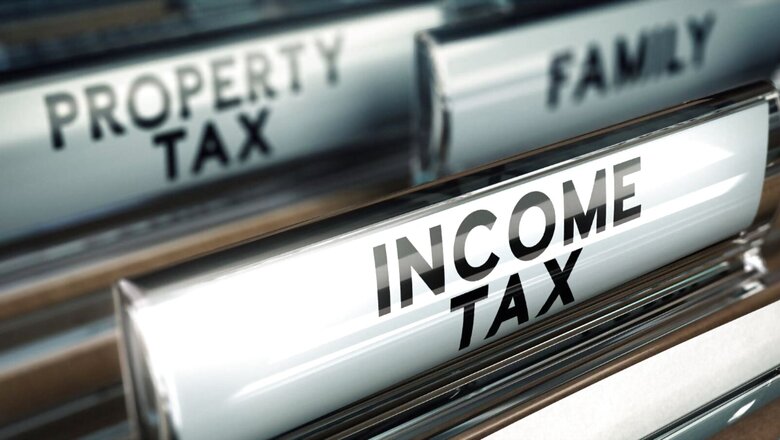
views
One of the key demands from the Union Budget 2023 has been to change the existing personal income tax structure in order to provide relief to a large section of people, especially the salaried and middle class.
If reports are to be believed, the government has held detailed discussions to overhaul the new personal income tax regime without exemptions, with a new plan expected to be announced in the budget 2023, financial daily Livemint reported quoting a person aware of the development.
The report said that the proposals examined include adding more slabs to the new income tax scheme.
The expectation of this overhaul has been making headlines since the last couple of weeks.
Recently, according to a report published by news agency Reuters, said that the government is prepared to make changes in the income tax slab in the upcoming budget.
Quoting two government sources, the report had said that this time, the income tax exemption limit may be raised from Rs 2.5 lakh to Rs 5 lakh.
Budget 2023 Expectations Live Updates
Currently, no tax is payable on the income of up to Rs 2.5 lakh per annum. Also, income of up to Rs 3 lakh for persons in the age group of 60-80 years and Rs 5 lakh for senior citizens above 80 years of age, is tax-free.
What is an income tax slab?
Income tax is levied on individual taxpayers on the basis of a slab system. It is a system where different tax rates are prescribed for different ranges of income. It means the tax rates keep increasing with an increase in the income of the taxpayer.
Also Read: Budget 2023 Expectations: Will Home Buyers Get More Relief? Here’s What Real Estate Sector Wants From FM
The demand to change the structure has been suggested by business leaders across sectors as well, in order to boost the consumption and increase disposable income of people.
Manish Jeloka, co-head of products and solutions, Sanctum Wealth, said, “On the personal tax front there could be marginal changes in tax slabs or increase in 80C limits while we may see selective increase in import tariffs to shore up Government revenues and help the domestic manufacturing sector. In addition the Insurance sector could also see some relief or impetus for faster growth.”
Kantar in a latest survey said increasing basic income tax exemption limit, from current Rs 2.5 Lakh, is the most common expectation among consumers followed by the increase in the threshold limit of highest tax slab rate of 30%. from current Rs 10 Lakh. The former is notably higher amongst the Salaried segment (42%) while the latter is expected more by businessmen/ self-employed (37%) and older 36-55 year olds (42%) segments, it noted.
Yeshasvini Ramaswamy, serial entrepreneur and CEO, Great Place to Work India, expected that the Budget should provide some changes in the income tax structure.
“The tax rates have not been considered for revision since FY 2017-18 and this budget may be an ideal time for revisions that will enable more purchasing power and to provide some tax relief. The ‘middle class’ and the ‘lower middle class’ have been impacted to a large extent due to the impact of Covid-19 for two consecutive years and pursuant to the global inflation, conditions are difficult. Their expectations may be the highest from the current dispensation. While India features among the higher category of a tax country, the follow through on social security still remains a long road to be travelled,” Ramaswamy added.
Amarnath Halember, executive director and CEO, NextG Apex India, also urged that the budget lowers the personal income tax rates in order to revive the consumption demand.
“If consumers have more disposable income, their purchasing power will automatically increase, leading to more sales of FMCG products. Second, the government must focus on strengthening rural spending power by devising favourable policies and encouraging an increase in the demand for consumer packaged products in rural areas. Third, it is important to reduce packaging prices as they are increasing the product prices affecting consumers’ spending habits. Also, rationalisation of GST rates is expected from the upcoming budget,” Halember stated.
Avneet Singh Marwah, CEO of SPPL, also suggested that seeing the global scenario of slowdown it will be really important to budget how it’s not hit on the common man’s pocket. “It will be great to see if there is some relief in the income tax slab structure.”
Read all the Latest Business News here




















Comments
0 comment